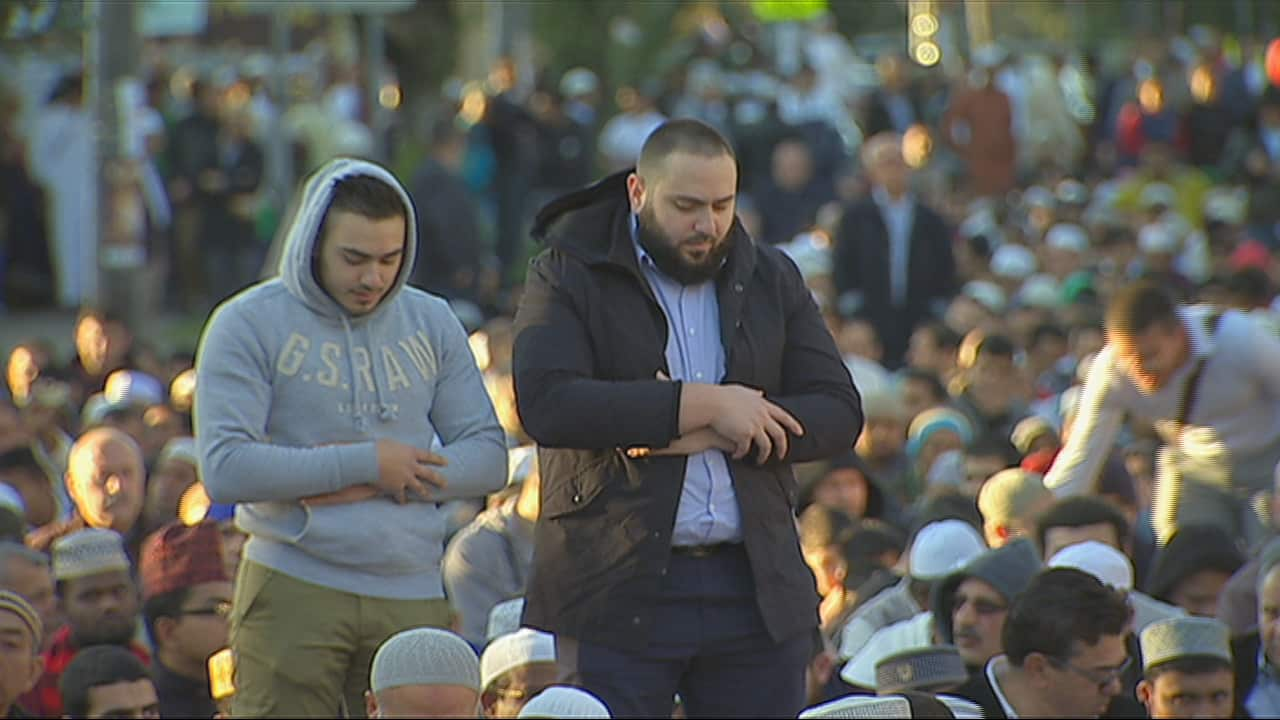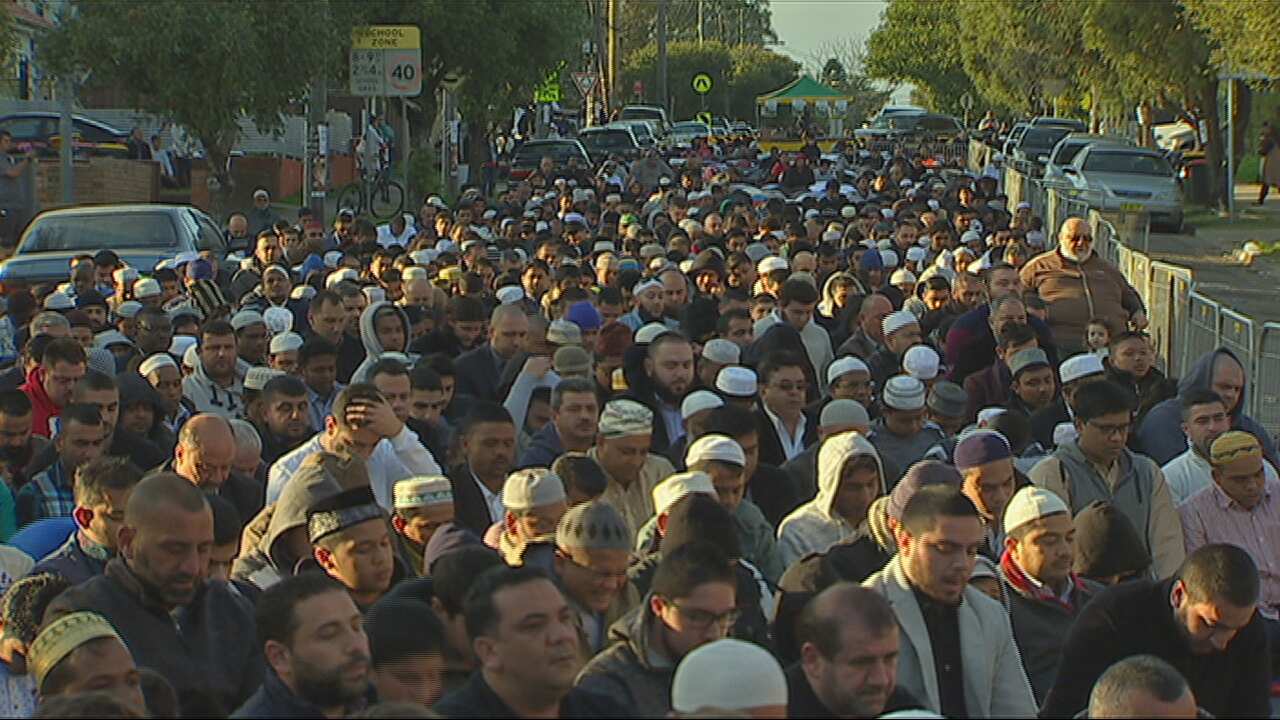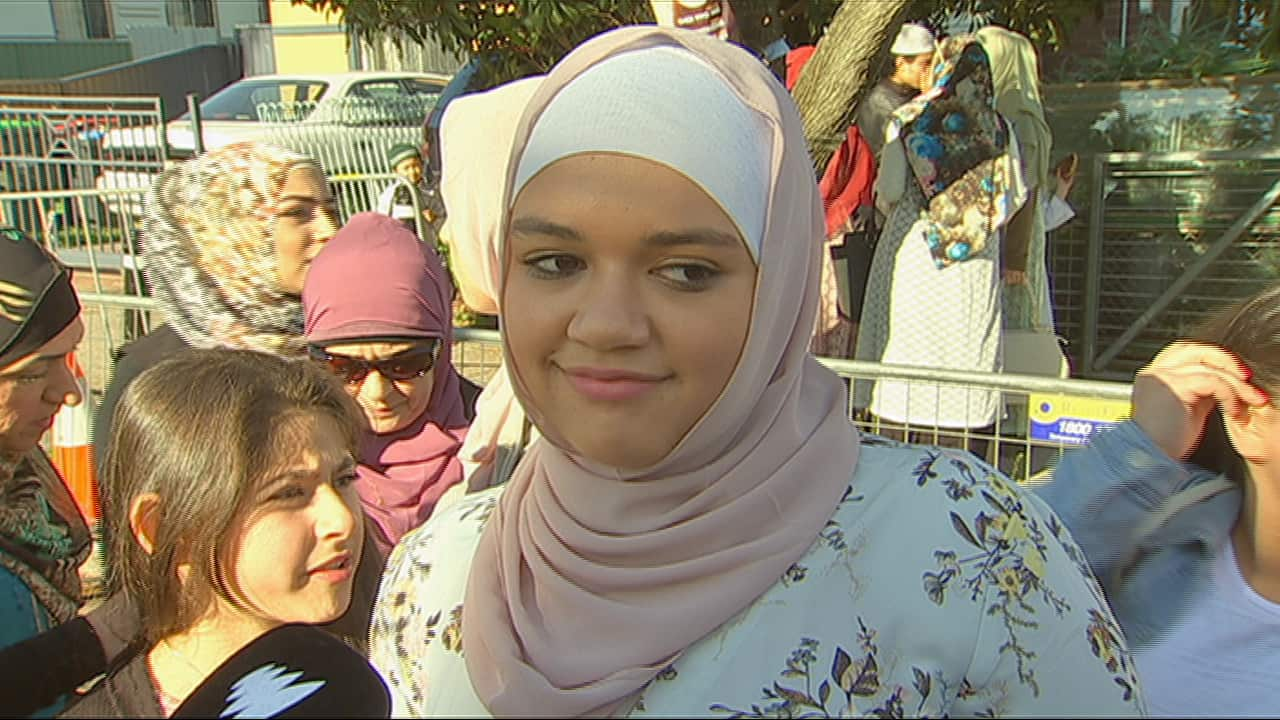In street prayers observed twice a year, thousands of Muslims have gathered to worship outside Sydney's Lakemba Mosque to celebrate the holiday of Eid Al-Adha.
It comes as Muslims across Australia have taken part in celebrations for the second of two annual holidays.
Eid al-Adha means the "feast of sacrifice," marked at the climax of the holy Hajj pilgrimage in Saudi Arabia.
But it has been tainted after a weekend stabbing in Minto, in Sydney's south-west, where a 22-year-old Muslim man was charged with committing a terrorist act and attempted murder.

Mainstream Muslims are again feeling a need to explain to others that all forms of violence have no place in their religion.
That includes Ms Jinan Kalank.
"Like they said they found something Islamic with him, but it doesn't mean he's actually a Muslim or practices Islam,” she said.
“It's a religion. It's got nothing to do with what people's actions are. Even if they were Muslim, and they do the wrong thing, that doesn't mean it's the religion."
It is a distinction also made by the imam of Lakemba Mosque, Sheikh Yahya Safi.
After the morning prayers, he preached that people's actions are more important than their particular faith.
"It is a sacrifice. It is a sacrifice. This life is a sacrifice. Allah ('Peace be upon Him') will not distinguish humanity according to their race, to their colour, to their background,” Sheikh Safi told worshippers.
“Allah ('Peace be upon Him') will judge everyone according to his deeds."

Lakemba's Muslim Member of Parliament, Jihad Dib, also condemned the Minto attack and other such acts.
"Look, the true nature of Islam is not demonstrated by the acts of some individual people,” Mr Dib told SBS.
“You know, these are some people who decided they want to come in and do what they want to do in the names of Islam, and that is not the case. They may want to profess to be Islamic, but their behaviours are anything but Islamic. What we know as a community, and as an Australian nation, is that it's our diversity that is actually our strength."
The Lebanese Muslim Association's Ahmad Malas agrees. He said Australia's wide mix of backgrounds is a key to finding a solution to people being lured by groups like the self-proclaimed Islamic State and to preventing cultural divides.
"It casts doubt on the achievements of this community, on the incredible strength and culture of this community,” Mr Malas said.
“Any challenge and struggle is not for one single person or group to overcome, but is a collective burden that we shoulder together."
Two key elements of Eid Al-Adha are charity and unity, not only between families and communities but all neighbours.
Worshipper Hamza Khedr said he hopes that will transcend into daily life and enable a diverse Australian solution to any issue.
"I think it's really important to come together, because this gives us ... like, you know, we can feel united, and we can support each other,” he said.
“When we're together, we can, like, you know, understand our problems together. We can solve it together."

Seventeen-year-old student Amira El-Hache told SBS she believes the frequency of domestic attacks such as the one in Minto has caused an angry backlash against Muslims like her.
She said that, at times, it has made her too afraid to leave her house. Ms El-Hache hopes the greater Australian public will learn the true nature of Islam does not contain the death and bloodshed that headlines suggest.
"They just don't see what it truly is. It's all about peace and that, and coming together and bringing everyone together,” she said.
"I think people, like, should see the bigger picture about it and, like, view us as something...not so much as an enemy, but more like a friend."
